Nature Knows and Psionic Success
God provides
10 Mind-Blowing Things You Didn’t Know Your Brain Can Do
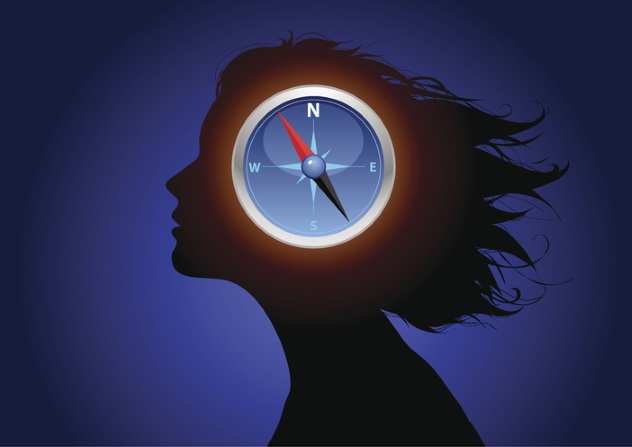
Thanks to years of studying the insides of people every chance we get, we have a pretty good grasp on the functions of almost all of our body parts. The brain , however, seems to get more mysterious the more we try to study it. Because of its complexity, it’s no surprise that studying it (as well as the nervous system) is a full-fledged scientific field on its own, namely neuroscience. As our scientific tools get better and we get a deeper insight into the inner workings of the most important part of the body, we realize that it’s capable of much more than we previously thought. Here are ten of the most mind-blowing things you had no idea the human brain can do. 10 Sense Earth’s Magnetic Field The ability to sense the Earth’s magnetic field has been extensively found and studied among animals . From birds to marine mammals to insects, many of them use the field to navigate, though this ability has always been assumed to be absent in human beings. After all, if we had that, why did we bother with the whole navigation thing in the past? As it turns out, we might just have it, though not to the level of other animals. In a recent study, researchers put 84 participants in a Faraday cage, which is just a fancy name for a box without any electromagnetic disturbance. They created an artificial magnetic field and gradually changed its orientation and then observed the reaction in the brain. To their surprise, there was a definite reaction in the sections of the brain that deal with sensory stimuli. [1] The participants couldn’t consciously feel anything, and the reaction was limited to changes in magnetic orientation that would be found in nature. (The brain didn’t react […]
Beast Sports drops the formula behind its Guerrilla Chemist nootropic
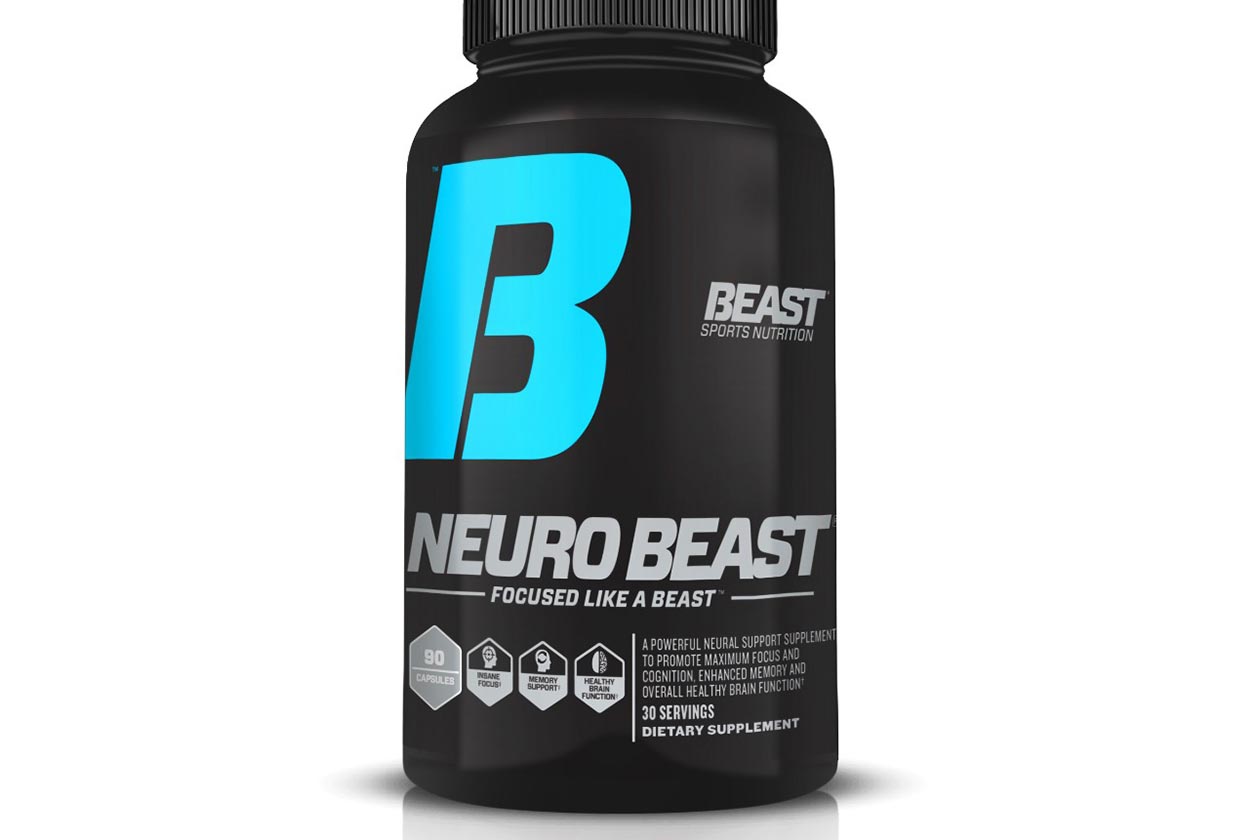
Beast Sports has completely unveiled its second supplement collaboration with the reputable and informative Guerrilla Chemist. The first product the brand teamed up with him for was the testosterone booster Super Test Maximum , with the newest one being the focusing enhancing formula Neuro Beast. Formula As you’d expect coming from the Guerrilla Chemist, Beast Sports Neuro Beast features a full-on mix of ingredients for a complete focus enhancing experience. Like a lot of other focus supplements lately, Neuro Beast is caffeinated, so you may not want to go mixing it with other stimulant powered products. The Beast Sports collaboration packs all of its features into a rather large three-capsule serving size, with a total of 1.76g of active ingredients. You can see its full list of features directly below including highlights such as 400mg of alpha-GPC, 200mg of caffeine, 375mg of lion’s mane , and 25mg of an ingredient we don’t see all that much of anymore in noopept . Benefits As you can see, Neuro Beast comes with quite a wide variety of ingredients, with Beast Sports promoting a well-rounded mix of benefits from the combination. The Guerrilla Chemist collaboration promises to help increase energy and mental focus, enhance memory and cognition, as well as support overall brain health. Availability As far as we know, Beast Sports is still due to launch its promising focus supplement Neuro Beast, sometime in during the next month or so. It’ll come with the usual amount of 30 servings per bottle, and if its anything like Beast Sports’ last Guerrilla Chemist collaboration, Neuro Beast will be available first through beastsports.com .
Self-Help for Post-Traumatic Stress

The term post-trauma says it all: The trauma is in the past, but people with post-traumatic stress find it difficult to leave it behind and move on. They may relive the event over and over—sometimes in bad dreams that cause disturbed sleep , in flashbacks that have them time traveling back to a distressing past moment, and in recurrent negative thoughts that can’t be stopped. This leaves them stuck in the muck of time, frequently making it impossible to escape its grip. Post-traumatic stress disorder (PTSD or as we refer to it here, PTS) was first recognized as a trauma-related mental disorder in 1980 by the American Psychiatric Association following research on the effects of war on soldiers and veterans of Vietnam. But PTS can be caused by a number of traumatic experiences other than military- or war-related trauma. To name a few: accidents, including and especially automobile accidents that threaten life or injury (the number one cause of PTS in U.S. civilian men is serious automobile accidents), physical and/or sexual abuse (the number one cause of PTS in U.S. civilian women), terrorist attacks, as well as natural disasters such as hurricanes, tornadoes, earthquakes and floods. How Do You Know if You Have PTS? According to the Diagnostic and Statistical Manual of Mental Disorders published by the American Psychiatric Association, after a traumatic event if you have symptoms that include depression, anxiety, flashbacks, avoidance, isolation, difficulty falling and/or staying asleep, difficulty concentrating, irritability, an exaggerated startle response and hypervigilance, you may have Acute Stress Disorder (ASD). If these symptoms last longer than a month, then you may have PTS. In a nutshell, PTS is made up of three basic things—trauma, depression and anxiety. (We encourage you to visit our Psychology Today column, This is Your Brain .) Degrees of […]
Will smart technology help us age better, or will it just make us dumb?

Everett Collection Artificial intelligence has come a long way. New technology devices and apps pop up as abundantly as summer weeds here in Silicon Valley. Chip-enhanced products offer to satisfy almost every need imaginable. Prompts from your smart refrigerator tell you to buy more milk. With a voice command, music plays to facilitate meditation, thanks to your smart — always on — helper who listens for your next query from a canister on your kitchen counter; you know, the one with a woman’s voice and name. In this glut of offerings, how do you select what is truly useful from what is simply the latest “smart” thing? And by smart, I mean capable of following directions, solving problems, answering questions and learning on its own. Smart products depend on algorithms designed by engineers to create artificial intelligence, otherwise known as AI. And to be clear, AI is also critical to big data collection and industrial settings, but here we’ll focus on consumer applications. Predictions about AI If this all seems confusing to you, it may be because most of us are not engineers creating solutions for problems we didn’t know we had — until we heard about it in a tweet, an ad on our smart pad or TV or from our adult child or grandchild. How do we separate the helpful from the just trendy? How do we know if a thing aids our memory or just substitutes for our thinking? How do we evaluate whether a new app makes our life easier or simply supplants our own efforts in maintaining strong brains? For those of us who are Gen Xers, boomers or beyond, there’s the added question about which technologies we might embrace to facilitate healthy aging — ones that don’t seem to patronize us. A good […]
Workforce Augmented Reality
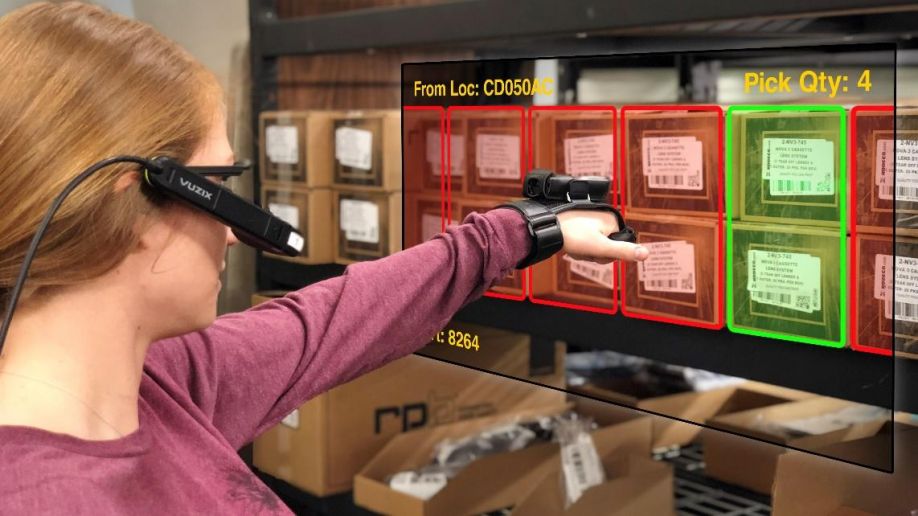
This holiday season, the rapid growth between Thanksgiving Day and Cyber Monday will help e-commerce merchants attain the $150 billion sales level two weeks earlier this season than just two years ago, in 2017. Every day from November 1 through December 21 will exceed $1.5 billion in e-commerce sales. It is June 2019; there is still time for managers of warehouses, distribution centers (DCs), and 3PLs (third party logistics) firms to ensure this season workers will be faster, safer, and more accurate thanks to workforce Augmented Reality (AR). AR technology ensures consistency, so an unskilled workforce can think and behave in the same way as those laborers with years of experience. Workforce technology is all about efficiency, consistency, repeatability, and safety, regardless of the person performing the task. © 2019 LogistiVIEW Thanks to AR, every worker, regardless of language, physical capacity, or pure variability, has the ability to efficiently make the right decision over and over again. The decision-making process ensures the worker is in the right place, picking the right object, and remains focused on the next step in the task sequence. In most operations, the information used to make these decisions is presented by a computer or trained through standard operating procedures (SOPs). While these decisions may only take seconds, with AR the probability of consistent picking, packing, and avoiding mispicks is dramatically increased. Holiday worker effectiveness There are many factors which impact workers’ effectiveness. The brain experiences fatigue, even from small decisions, over any long period of time. The brain struggles to make efficient and accurate decisions when too much information is available. Without reinforcement, in just seconds the brain begins forgetting information in short-term memory. There is a continued quality diminution, a declining slope of memory recall during which the brain struggles to know whether […]
New laws effective Thursday

June 26, 2019 While the approval of new laws is a wintertime activity, their actual implementation doesn’t generally take place until the much-quieter days of summer. For 2019, that date arrives on Thursday this week. This follows a constitutional requirement that says new laws take effect 90 days after the General Assembly completes its regular session. The only exceptions are if the law is an emergency or has a specific enactment date. One law that I was especially glad to see pass will make our schools safer. The legislation takes a multi-pronged approach by expanding the number of trained school resource officers and guidance counselors and by standardizing and strengthening the best safety practices across the state. Legislative leaders have promised to boost funding for these programs when the next two-year budget is approved in 2020. There were quite a few other bills to pass this year that I was proud to support. We passed a law to try to stop telemarketers from using local phone numbers to trick people into answering them, for example, and we strengthened the workplace rights of women who are pregnant or are new mothers. We also toughened the terroristic threatening law so those convicted of threatening churches or other public gatherings will face enhanced penalties. One major change enacted this year is the effective repeal of the 23-year-old concealed-carry law, meaning those 21 and older who can legally possess firearms will be able to carry them concealed without needing a permit. The previous restrictions covering concealed weapons – barring them from courthouses, for example – are still in effect. June 19, 2019 A horrible mistake or a horrible crime? How can a parent mistakenly leave a baby in a car? Accidents happen. But how does a parent work the entire day and forget […]
10 Tips To Make You Memorize More And Learn Faster
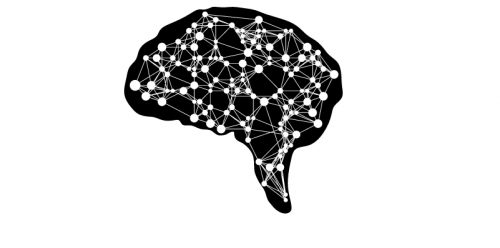
Memorize a lot of things is not an easy task and people tense to take decent amount of time to learn something they didn’t know before. Fear no more as we will guide you through some solution to make you learn and memorize more effective. I’ve always been envious of people with exceptional memories. You know, the kind of people who amass encyclopedic knowledge with seemingly little effort, while the rest of us struggle to remember the name of the person we were introduced to seconds ago. There’s hope for all of us, though. Just as we can strengthen any other muscle in our bodies, we can train our brains to remember more and learn anything faster. You don’t need to be born with a photographic memory (and, in fact, with a few notable exceptions, virtually no adults actually have a photographic memory). Whether you need to study for an exam, want to learn a new language, hope to avoid embarrassing memory lapses (what’s the name of your manager’s spouse again?), or simply want to stay mentally sharp, improving your memory is easier than it sounds. All it takes is trying out new memorization techniques or making key adjustments in your lifestyle. Here are 10 of the best tips and tricks to help boost your memory for both the short and the long term. The Science of Memory First, let’s talk about how memory works, so we can understand the science behind these memorization techniques. If memory–or how our brains make and recall memories–seems mysterious to you, you’re not alone. Scientists and philosophers have been trying to figure out how human memory works for at least 2,000 years–and they’re still making new discoveries. For example, in 2016, British scientists won the largest prize for neuroscience in the world (1 […]
Will smart technology help us age better, or will it just make us dumb?

Everett Collection Artificial intelligence has come a long way. New technology devices and apps pop up as abundantly as summer weeds here in Silicon Valley. Chip-enhanced products offer to satisfy almost every need imaginable. Prompts from your smart refrigerator tell you to buy more milk. With a voice command, music plays to facilitate meditation, thanks to your smart — always on — helper who listens for your next query from a canister on your kitchen counter; you know, the one with a woman’s voice and name. In this glut of offerings, how do you select what is truly useful from what is simply the latest “smart” thing? And by smart, I mean capable of following directions, solving problems, answering questions and learning on its own. Smart products depend on algorithms designed by engineers to create artificial intelligence, otherwise known as AI. And to be clear, AI is also critical to big data collection and industrial settings, but here we’ll focus on consumer applications. Predictions about AI If this all seems confusing to you, it may be because most of us are not engineers creating solutions for problems we didn’t know we had — until we heard about it in a tweet, an ad on our smart pad or TV or from our adult child or grandchild. How do we separate the helpful from the just trendy? How do we know if a thing aids our memory or just substitutes for our thinking? How do we evaluate whether a new app makes our life easier or simply supplants our own efforts in maintaining strong brains? For those of us who are Gen Xers, boomers or beyond, there’s the added question about which technologies we might embrace to facilitate healthy aging — ones that don’t seem to patronize us. A good […]
Zopiclone Eliminates Insomnia and Offers Serene Rest at Night
Peaceful sleep at night is the key to good health. It improves the functioning of the body and keeps a person fresh and energetic throughout the day. As per a study of the National Sleep Foundation, insomnia affects one out of three people in the world. People suffering from this sleep disorder experience difficulty in dozing off after retiring to bed. Individuals who somehow manage to get asleep don’t attain a sound sleep and experience nocturnal sleep disturbances and early morning awakenings. Sleep deprivation is the main cause of impaired cognitive function and weak memory. Less sleep or incomplete sleep at night reduces energy levels and makes people drowsy, dizzy and irritable. Recent research has shown that people who spend sleepless nights in bed remain less happy and less cheerful than those who sleep peacefully at night. Some of the common causes of insomnia are: • Medical condition • Mental health disorders • Sleep-related disorders • Poor lifestyle and • Use of certain medications Pain in any part of the body can keep people awake at night. Other examples of a medical condition linked to insomnia include diabetes, asthma, cancer, Alzheimer, Parkinson’s disease and restless legs syndrome. Psychological factors such as stress, anxiety and depression can deteriorate the quality of slumber and lead to sleepless nights. Use of beta blockers, antidepressants and other medications for blood pressure and asthma can disrupt the process of sleep. Similarly, the use of tea, coffee and caffeinated drinks can prevent people from falling asleep at night. Use of certain medication such as antidepressants and alpha-beta blockers can cause insomnia in some patients. Treatment of Insomnia Insomnia can be treated through improvement in sleep hygiene, lifestyle changes and home remedies. Relaxation techniques such as yoga, meditation and cognitive behaviour therapy can also improve the […]
Top 5 tips for avoiding the ‘conference vortex’

If the event is a networking opportunity, determine whom you want to meet, how you intend to connect with them, where you might find them and what you would discuss As we head into another busy summer season of conferences, summits, festivals and roundtables, many professionals will invest a considerable amount of time and money in specialist events that boost their knowledge, networks and enthusiasm. But while conferences can be a brilliant way of broadening one’s horizons, establishing professional connections and plugging into exciting new innovations, they can also assault the senses and leave attendees feeling overwhelmed. In such an environment, it can be difficult to retain ideas and newly established contacts, rendering the exercise a complete waste of time. This is what I call a ‘conference vortex’ – the point at which your brain, having been filled with great ideas, is emptied once you leave the event. Fortunately, there are a number of ways to counter this detrimental vortex and make the most of the conferences you attend. Establish outcome goals Start by asking yourself some important questions about why you are attending this specific event, what you hope to achieve, who you want to meet and which talks you believe are simply unmissable. You may want to rank potential outcomes using a gold, silver and bronze-based system. A successful event strategy usually focuses on a single theme. Using this theme as a starting point, devise a timetable and a rough order of priorities regarding which talks, people and products you want to experience. By focusing on a clear goal, you can cut out the distractions and make the most of your time. By focusing on a clear goal, you can cut out the distractions and make the most of your time at an event If it’s a […]
Ease Yourself To Sleep With These Essential Oils

The world isn’t getting enough sleep. In the United States alone, around 50-70 million people are suffering from sleep disorders , be it insomnia, restless leg syndrome, narcolepsy and breathing-related sleep disorders. Furthermore, a study published in the journal Sleep found that nearly one-third of Americans sleep fewer than six hours per night ( 1 ). That said, in an effort to use natural remedies to address health concerns, the use of essential oils may help address some of those sleep concerns. Why isn’t the world sleeping enough? Sleep is an important and integral part of a healthy lifestyle. That said, a lack of it can be extremely detrimental to one’s overall health. Aside from affecting your functionality the following morning, sleep deprivation can also increase the risk of serious health diseases. If you’re struggling to get the recommended 7-8 hours a night of quality sleep, you are thus increasing your risk of poor cognitive functioning, depression, anxiety, a weakened immune system, heart disease and a lowered libido . Further, the detrimental effects of sleep deprivation can also lead to the use, and often abuse, of prescription sleep aids, with The Centre for Disease Control and Prevention (CDC) revealing that around 4% of Americans are currently using prescription sleep aids ( 2 ). In April of this year, the FDA released a mandate that called for attention to the serious or life-threatening risks associated with n three sedative-hypnotic sleep aids: eszopiclone (Lunesta), zaleplon (Sonata) and zolpidem (Ambien). Whilst these drugs are used to help maintain sleep, the FDA has linked them to 20 reported deaths, caused by carbon monoxide poisoning, hypothermia, car accidents, apparent suicide and 46 non-fatal but serious injuries, which included accidental overdoses, falls and near-drownings. The potential side effects that come from using sleeping pills include […]
Text Generation with Python and TensorFlow/Keras

Introduction Are you interested in using a neural network to generate text? TensorFlow and Keras can be used for some amazing applications of natural language processing techniques, including the generation of text. In this tutorial, we’ll cover the theory behind text generation using a Recurrent Neural Networks , specifically a Long Short-Term Memory Network , implement this network in Python, and use it to generate some text. Defining Terms To begin with, let’s start by defining our terms. It may prove difficult to understand why certain lines of code are being executed unless you have a decent understanding of the concepts that are being brought together. TensorFlow TensorFlow is one of the most commonly used machine learning libraries in Python, specializing in the creation of deep neural networks. Deep neural networks excel at tasks like image recognition and recognizing patterns in speech. TensorFlow was designed by Google Brain, and its power lies in its ability to join together many different processing nodes. Keras Meanwhile, Keras is an application programming interface or API. Keras makes use of TensorFlow’s functions and abilities, but it streamlines the implementation of TensorFlow functions, making building a neural network much simpler and easier. Keras’ foundational principles are modularity and user-friendliness, meaning that while Keras is quite powerful, it is easy to use and scale. Natural Language Processing Natural Language Processing (NLP) is exactly what it sounds like, the techniques used to enable computers to understand natural human language, rather than having to interface with people through programming languages. Natural language processing is necessary for tasks like the classification of word documents or the creation of a chatbot. Corpus A corpus is a large collection of text, and in the machine learning sense a corpus can be thought of as your model’s input data. The corpus […]
Beat Jetlag With These Neuroscience Hacks

I fly a lot. My work often takes me across several time zones. I travel to see clients in the USA and Australia, both a long way from my home in the UK and on very different latitudes. Twice a year, I spend a significant amount of time at MIT Sloan where my body clock adjusts totally and then I return home to face the re-adjustment! I’m passionate about exploring in my spare time. I love to visit different places and experience new cultures. But I understand – perhaps too much – how flying long haul can be detrimental to brain and bodily function. My professional experience as a medical doctor, neuroscientist and also as an executive advisor (now “in residence at Annabel’s , Mayfair”*) has led me to think about the way long distance journeys impact on my own and my clients’ cognitive performance. In looking at the different effects of long-haul flights on sleep quality, physical function and hydration alongside our capacity for high-level thinking, problem solving and mood, I have devised some tried-and-tested jetlag offset strategies that will help you adjust quickly to a change in time zone and ensure you don’t start or finish your business trip or your holiday with compromised brain function. A word of advance warning, the ideal combination of strategies equates to sensory deprivation but you will thank me for it! BEWARE BLUE LIGHT The blue light from smartphones, tablets, laptops and TV screens on a flight will interfere with your body clock in the same way as they do on land, but this is complicated by the
Energy Drinks: Quick Pick-Me-Up or Health Hazard?

June 26, 2019 — As more people turn to energy drinks when they feel a little sluggish — sales increased a whopping 5,000% between 1994 and 2014 — many health experts are concerned that they are a more dangerous choice than coffee or other sources of caffeine , especially for teens and young adults. Although people 18-38 are the biggest consumers of energy drinks, almost one-third of teens ages 12-17 use them on a regular basis. Studies and case reports have pointed to worrisome links between energy drinks and a variety of health problems — particularly heart troubles — in young people. Whether they stem from caffeine , other ingredients, or a combination isn’t clear, though high doses of caffeine alone can be toxic. In recent years, at least two teenage boys have had heart attacks after having energy drinks, and at least another two got atrial fibrillation , a type of irregular heartbeat . Sean and Heidi Cripe of South Carolina, whose son Davis died 2 years ago, have pushed for a bill to restrict the sale of these drinks to children under 18. Connecticut lawmakers have proposed a similar bill that would ban the sale of energy drinks to kids under 16. Whether or not such bills become law, parents ought to advise their children to avoid these products, say health experts. Young adults need to be cautious as well. "The AAP feels strongly that caution is warranted in advising youths and adolescents against using energy drinks regularly," says Holly J. Benjamin, MD, a professor at the University of Chicago and co-author of a policy statement from the American Academy of Pediatrics (AAP) on sports drinks and energy drinks. "The true effects and the doses that are the most dangerous are not known; therefore it’s hard to […]
These Nootropics Are at the Cutting Edge of Boosting Human Brainpower
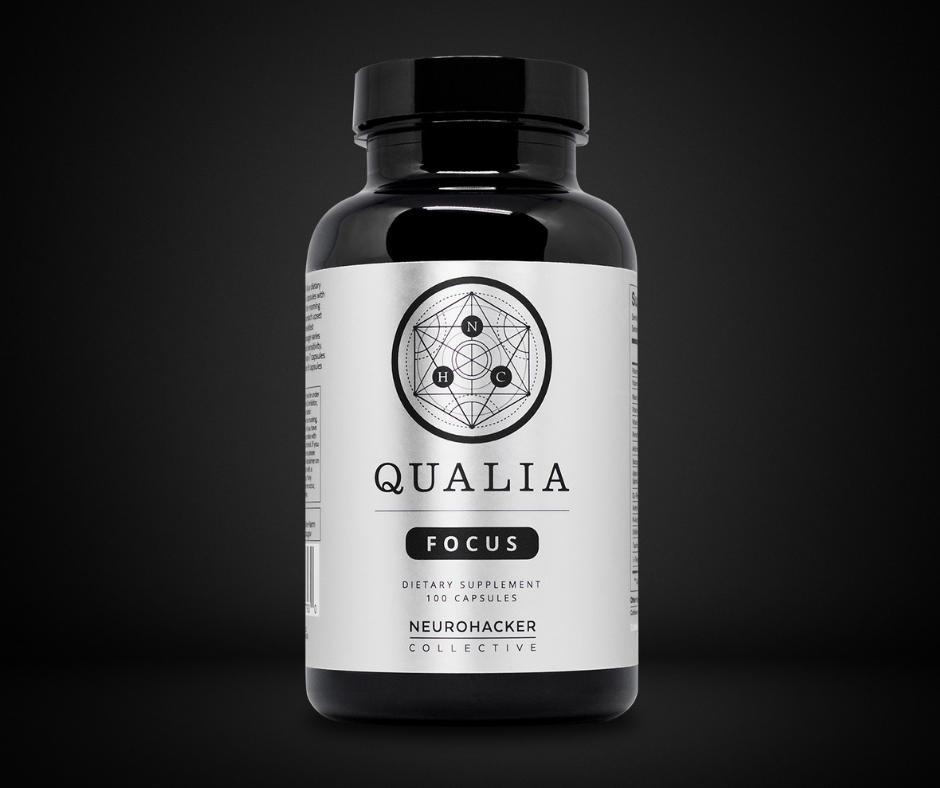
Nootropics have been getting a lot of press recently, but not always for the right reasons. A lot of companies have been putting so-called “smart drugs” in all sorts of supplements and making pretty wild claims about what they can do, prompting both the FDA and the FTC to warn consumers about potential marketing scams and advertising fraud. That said, while you certainly shouldn’t believe everything you read on the Internet, you also shouldn’t let the frauds scare you away, because the science behind nootropics is real. While these substances won’t make you a genius or cure Alzheimer’s, studies show a nootropics supplement can boost cognitive performance, particularly executive functions like focus, memory, willpower, and creativity. You just need to find a company you can trust. And one such company is the California-based Neurohacker Collective, whose Qualia Focus and Qualia Mind are quite possibly the best nootropics supplements available anywhere in the world. To put it simply, nootropics are amino acids, nutrients, minerals, and other compounds that the brain uses as fuel for cognition. Most of the time we get nootropics through our diet. However, the modern Western diet has steered away from most of these obscure plants, roots, seeds, and minerals with some of the most commonly reported brain boosting powers: plants like rhodiola, bacopa, celastrus seed extract, and many more. But a nootropic formulator can’t just take a “kitchen sink” approach. Formulating effective nootropic formulations is an art. Most companies just throw a bunch of these ingredients together and call it a miracle drug, when in reality, it’s a deep understanding of the precise relationship between the dosage of each ingredient that creates a balanced, positive effect. Neurohacker Collective , which boasts a heavily credentialed lineup of established science and medical personnel on their team, pride themselves […]
This Miracle Summer Superfruit Is the Sweetest Way to Reduce Inflammation and More

Sweet Northwest cherries are a delicious summer staple, but did you know these little crimson orbs pack a powerful nutritional punch that hits harder than most other fruits? From June through August, over 2,100 cherry growers across the Pacific Northwest will harvest nearly 500 million pounds of sweet cherries, meaning ample opportunities for all of us to take advantage of their amazing health benefits. Sweet, compact, and fun to eat, everyone knows cherries are a fun and easy summertime snack, but their disease-fighting and immune-boosting qualities are often overlooked. Here are seven ways sweet cherries will improve your health this summer. Sweet cherries may prevent cancer and inflammation We know that free radicals in the body can wreak havoc, but did you know that sweet cherries contain free-radical scavengers that may stop cancer cells from receiving the protein they need to multiply? Not only that, but research has shown that several types of cancer are inhibited by the anthocyanins found in sweet cherries. They are even listed by the American Institute for Cancer Research as a food that fights cancer. These same antioxidants help reduce inflammation. “Sweet cherries reduce inflammation because they’re absolutely loaded with antioxidants,” says nutritionist Keith Ayoob . Sweet cherries prevent gout When the body cannot rid itself of uric acid, or produces too much, gout is the result. A very painful form of arthritis, this common condition affects over eight million Americans. Sweet Northwest cherries are a powerful prevention tool in the fight against gout due to their anti-inflammatory properties. “Sweet cherries have been shown to reduce the levels of uric acid in the bloodstream, which can help to reduce the incidence of gout,” said Lisa Richards, nutritionist and creator of The Candida Diet . “One study showed that eating sweet cherries caused a drop […]
MCTs help prevent cardiovascular disease by improving the metabolism of cholesterol

( Natural News ) Not all fats are dangerous to your health. For example, medium-chain triglycerides (MCTs) are a type of saturated fat that possesses many health benefits, including cardiovascular disease prevention. A study published in the journal Nutrition Research found that MCTs can protect against cardiovascular disease by promoting macrophage reverse cholesterol transport (RCT) process. The study, carried out by researchers from the Chinese PLA General Hospital in Beijing, looked at whether medium-chain triglycerides could improve atherosclerosis. In a previous study, the same research team observed that MCTs could reduce body fat mass and improve the metabolism of cholesterol. In this study, they hypothesized that medium-chain triglycerides can improve atherosclerosis by promoting the RCT process. To test this, they randomly fed mice with a diet containing two percent MCTs or long-chain triglycerides (LCTs) for 16 weeks. They assessed the roles of MCTs in macrophage RCT and the progression of atherosclerosis. The results revealed that mice that received medium-chain triglycerides experienced greater reductions in body fat mass and atherosclerotic plaques compared with those that received LCTs. In addition, the MCT mice group had more significant improvement in serum lipid profiles than the LCT group. Moreover, the research team found that medium-chain triglyceride could promote macrophage RCT and improve atherosclerosis. With these results, the research team concluded that MCTs can potentially be used to protect against cardiovascular disease , particularly atherosclerosis. Atherosclerosis is a disease that causes arteries to narrow and harden due to plaque buildup. The power of the elements : Discover Colloidal Silver Mouthwash with quality, natural ingredients like Sangre de Drago sap, black walnut hulls, menthol crystals and more. Zero artificial sweeteners, colors or alcohol. Learn more at the Health Ranger Store and help support this news site. What are MCTs and what makes them different from […]
What are anticholinergic drugs and should you be wary of a link to dementia?

USA TODAY An observational study released Monday linked dementia in seniors with the usage of anticholinergic drugs. The study, published in the peer-reviewed JAMA Internal Medicine journal , said taking these kinds of drugs resulted in nearly "50% increased odds of dementia" in adults 55 and older. But just what are anticholinergic drugs, and what should adults do in response to the study? USA TODAY talked to Dr. Shelly Gray, director of the Plein Center for Geriatric Pharmacy Research at the University of Washington, to find out. What are anticholinergic drugs? Gray said that anticholinergic drugs work by blocking a natural chemical in the brain, acetylcholine. "Acetylcholine is a neurotransmitter that is important for memory and learning, but it is also important for other body functions such as heart rate and muscle contractions in the stomach," she said. She went on to explain that several different types of medications can be considered anticholinergics: Antidepressants such as Amitriptyline, Nortriptyline and Paroxetine (Brand names: Elavil, Pamelor and Paxil) Badder medications such as Oxybutynin, Tolterodine (Brand names: Ditropan and Detrol) Antipsychotics Drugs that are used for Parkinson’s Disease A full list can be found here . Are anticholinergic drugs harmful? Scientists and doctors have known for quite some time that anticholinergics carry risks in seniors, according to Gray. "[Anticholinergic drugs] can cause a range of side effects such as constipation, difficulty with bladder control," she said. "They can cause acute changes in cognition, meaning slight changes in cognition, and delirium. More recently, there is mounting evidence that they might be linked to dementia." The risk, according to the study, is only associated with 1,095 daily doses taken within a 10-year period, which is equivalent to taking a strong anticholinergic medication daily for at least three years. Prevention: Here’s how to prevent dementia, […]
Boost Both Mind and Mood With This Special Blend of Advanced Nootropics
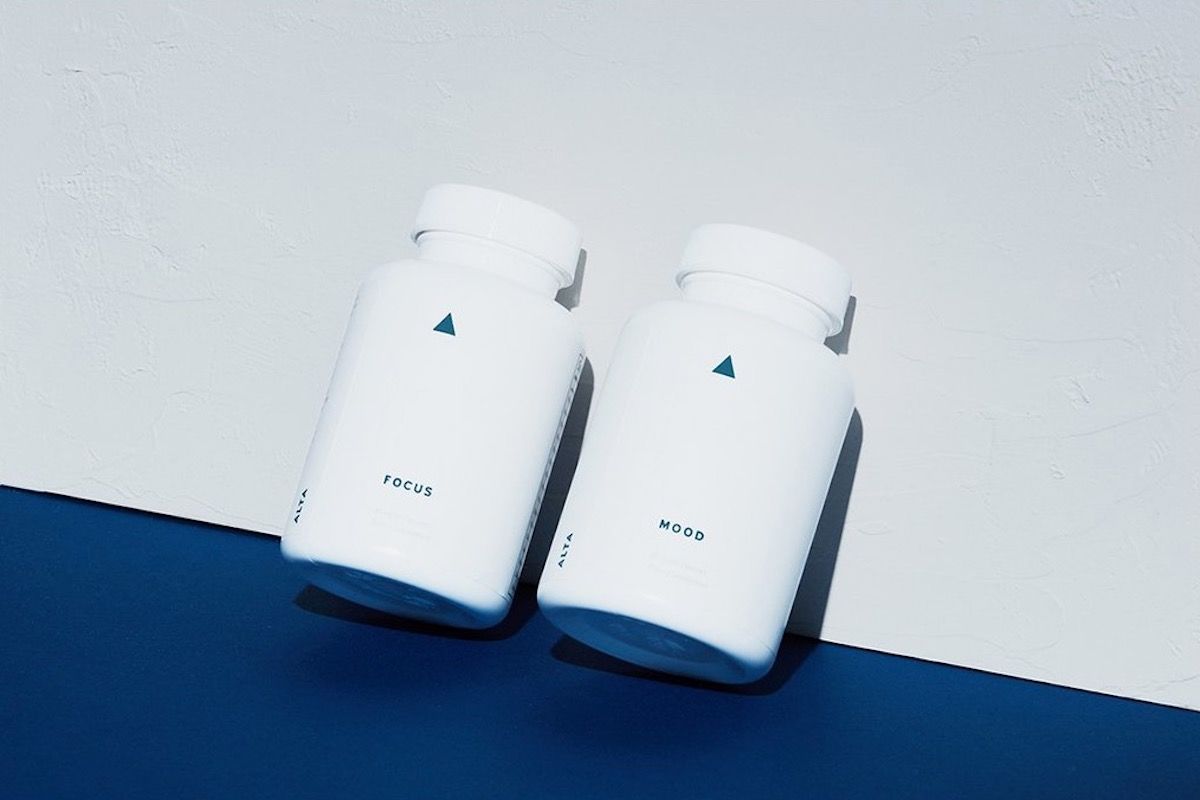
Everybody wants their brain to work better. Coffee may be delicious, but that’s not the main reason 60 percent of Americans drink it every single day. What we really want is the jolt of caffeine that makes us more alert and focused and ready to take on the day. But what if there was a better way to get a “better” brain, a more holistic approach that doesn’t just keep you awake, but elevates overall mental ability and provides nourishment for long-term brain health? Well that better way exists thanks to the Focus + Mood Kit, an advanced blend of nootropics from the ALTA project. As mentioned above, the central ingredients in ALTA’s Focus + Mood supplement are substances called nootropics that have been shown to improve cognitive function, especially with so-called executive functions such as memory, creativity, and motivation. While caffeine is also considered a nootropic because it helps improve reaction time, alertness, memory, and mood, it doesn’t actually make your brain healthier. All it does is block the neurotransmitters that produce feelings of drowsiness. The nootropics in the Focus + Mood Kit do a lot more than that. ALTA ALTA’s Focus + Mood Kit is actually two different supplements designed to work in perfect harmony. Focus improves mental capacity, brainpower, and energy. Mood relieves stress and helps restore and recuperate your mind. Each one contains a scientifically developed blend of botanical and synthetic ingredients that ultimately function as whole-brain optimizers. Here’s a rundown of the key ingredients of Focus: Magnesium for mental performance Vitamin C for neurotransmitter production Bacope monnieri for attention, memory, and cognition Green tea extract for alertness, cognition, and mood Huperzia serrata for memory, brain function, and focus L-Tyrosine for concentration and motivation DMAE Bitatrate for brain power and focus And here’s a rundown […]
How I Found My Creative Self in my 30s

Today marks my 34th year around the sun and for my birthday, I wanted to share some words on how I found my true creative self in my 30s. Yes, I’m over 30 and yes, I think women should promote their age and be proud of it. Big confession: I never felt like I was truly a creative individual until this year. Hear me out. A couple of months ago, I was beyond stressed with my workload (yes, even the CBD fairy gets stressed from time to time). I was talking to my friend about feeling overwhelmed with both my work and personal life workload (getting engaged is so fun, but after you’re done drinking that bubbly, it’s time to get to work and start planning that wedding; update: I haven’t started yet) and told him that, “I never thought I was really creative until this job.” Right when I said those words, I knew this topic was going to be my next story because I’m sure a lot of people feel the same way I do. Working for a small company as an editorial director has a lot of perks but it also means I wear a lot of hats. Fun hats, chill hats, weird hats, stressful hats… but a lot of hats indeed. This means that I always have to be on top of my game! Working in digital media also means that I’m always working months and seasons ahead whether that’s planning, connecting, developing or writing. Translation: no days off but at least creativity is promoted and fostered in my work environment. Outdoor Voices Entireworld But first, a little back story… I mentioned this before, I’m a proud child of immigrant parents. My parents have lived in the same house for the past 40 years in […]
